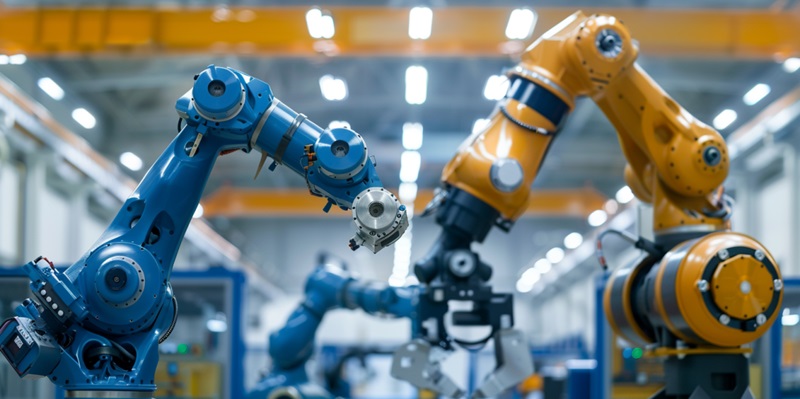The dawn of artificial intelligence (AI) in the industrial robotics sector marks a significant evolution in how machines interact with the physical world. Utilizing advanced pattern recognition, machine learning algorithms, and real-time data analytics, AI is equipping robots with unprecedented dexterity and cognitive capabilities. This transformation is widely evident in the domain of robotic grasping – a fundamental, yet complex task for industrial robots.
Enhancing Precision and Adaptability
AI-driven robotic systems are now being taught to recognize and handle an array of objects with remarkable precision, mirroring human-like dexterity. Through the use of deep convolutional neural networks that process visual and sensor data, robots can dynamically adjust their grip based on object shape, size, texture, and even predict the necessary force to avoid slippage. Such advancements allow robots to perform tasks ranging from the delicate assembly of electronic components to the robust handling of heavy machinery parts.
Moreover, the adaptability introduced by AI in robotic grasping extends beyond pre-programmed scenarios. Robots can learn from each interaction, refining their algorithms over time to handle object variations or unexpected environmental changes. This adaptability is further enhanced by the integration of reinforcement learning techniques, wherein a robot iteratively improves its grasping strategies through trial and error, effectively learning from its successes and mistakes without human intervention.
Transforming Industrial Efficiency
The industrial robotics industry is experiencing a revolutionary shift with the integration of artificial intelligence (AI). This technological advancement is greatly enhancing the way robots interact with their environment. Through the power of AI—anchored in sophisticated machine learning, pattern recognition, and real-time data analysis—robots are now achieving a level of precision and cognitive function like never before. One area where AI’s impact is particularly pronounced is in robotic grasping. This task, while basic, is incredibly intricate and has traditionally posed a challenge for robots. However, the addition of AI into the mix has allowed robots to navigate the nuances of gripping and handling objects with a finesse that closely emulates human dexterity. As this technology continues to mature, it promises to redefine the capabilities of industrial robots, making them more adaptable, efficient, and intelligent in performing an array of complex tasks. This leap forward not only increases productivity but also opens up new possibilities for robotic applications across various industries.

